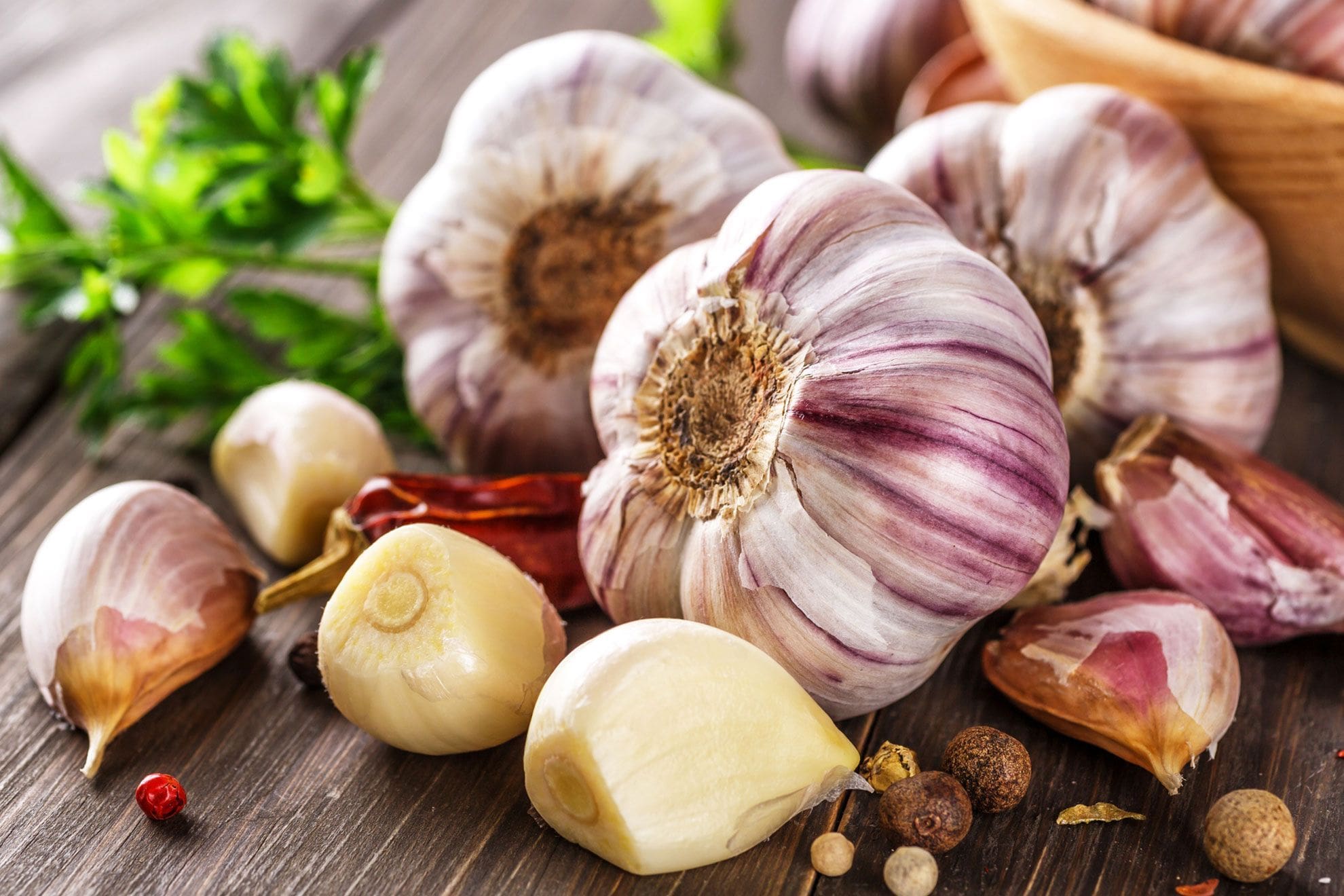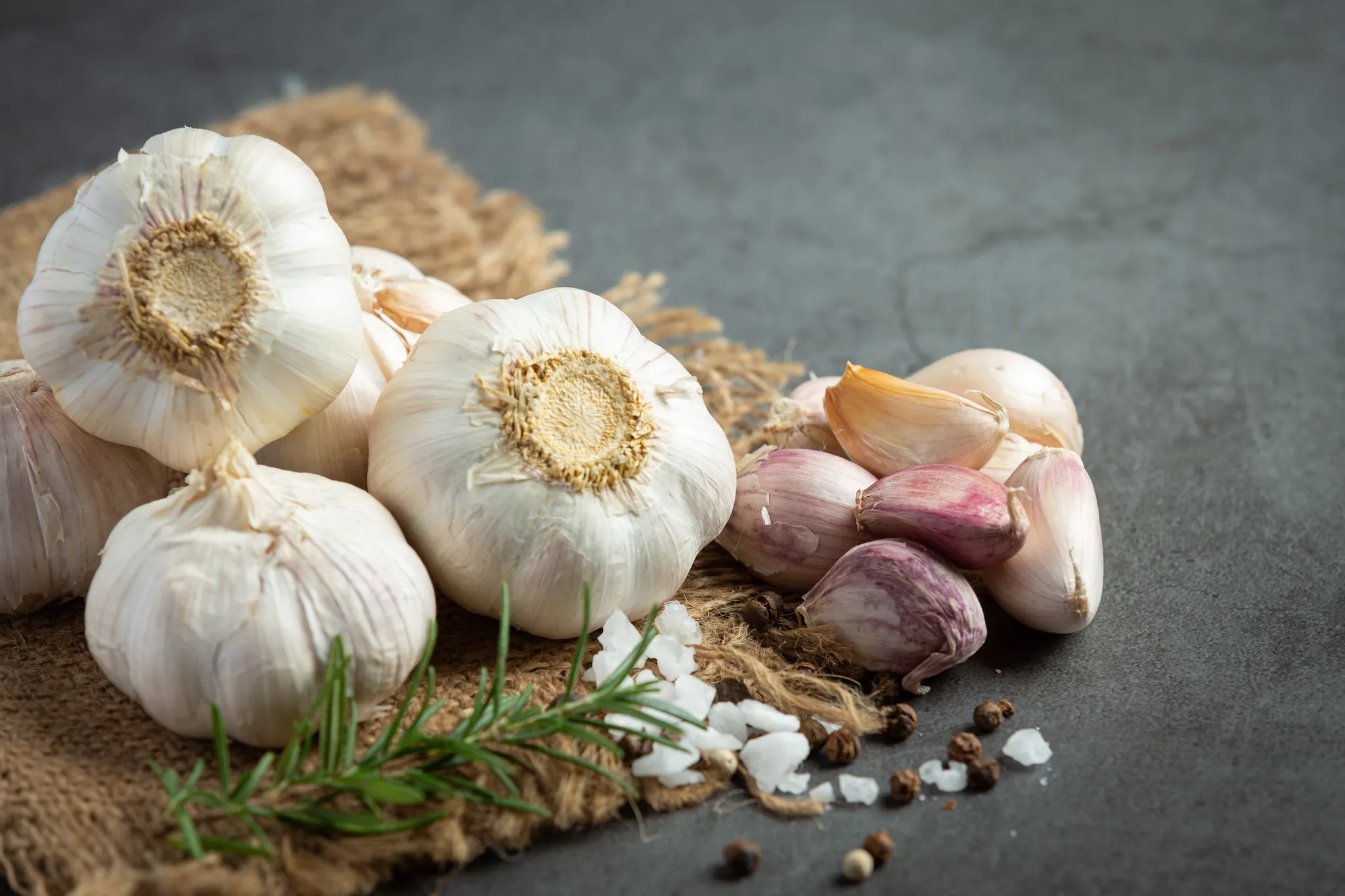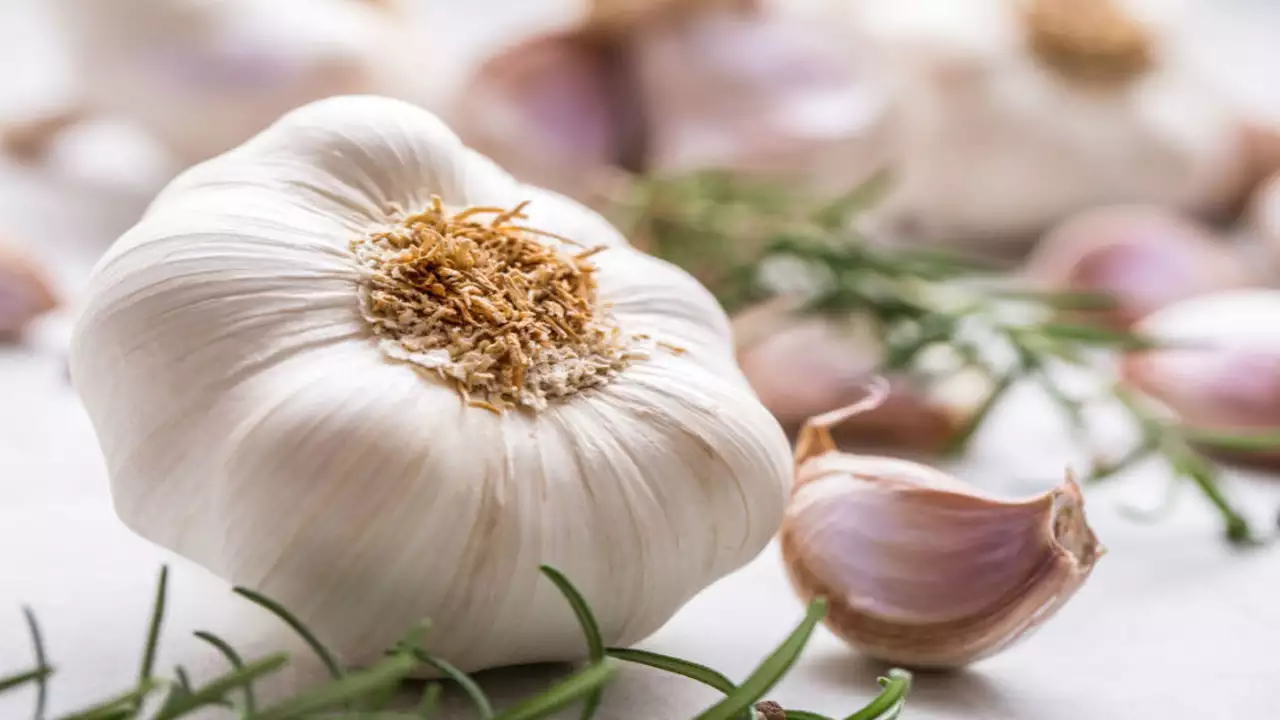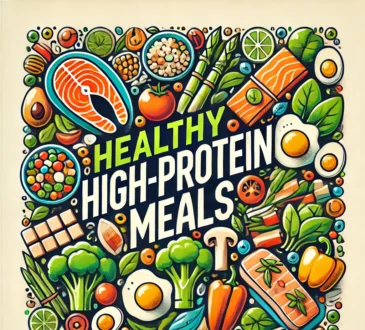Garlic, with its pungent aroma and distinctive flavour, has been a culinary staple for centuries. But did you know that this humble bulb offers a plethora of health benefits too? From boosting heart health to strengthening the immune system, garlic is a versatile ingredient with remarkable medicinal properties. Join us on a journey as we delve into the world of garlic and uncover its incredible benefits.
Nutritional chart
Here is the nutritional chart for 100 grams of raw garlic. Note that 1 medium to large garlic clove weighs between 3-8 grams each.
| Amount of nutrients per 100g | Percentage of recommended daily intake | |
| Calories | 149 | |
| Carbohydrates | 33.1 g | |
| Fibre | 2.1 g | |
| Fats | 0.5g | |
| Protein | 6.4g | |
| Vitamin B6 | 1.2mg | |
| Vitamin C | 31.2mg | |
| Thiamin | 0.2mg | |
| Riboflavin | 0.1mg | |
| Also contains vitamins A, E, K, Niacin, Folate, Pantothenic acid and Choline | ||
| Manganese | 1.7mg | |
| Selenium | 14.2mcg | |
| Calcium | 181mg | |
| Copper | 0.3mg | |
| Phosphorus | 153mg | |
| Potassium | 401mg | |
| Iron | 1.7mg | |
| Also contains Zinc, Magnesium and sodium |
Some Benefits of Garlic
Garlic is a versatile and widely used ingredient in cooking, and it also offers numerous health benefits. Here are some of the potential benefits of garlic:
1. It Helps Boost Your Body’s Immune System
Garlic offers an immune system boost to help prevent colds and the flu virus. Eating raw garlic can protect against cough, fever, and cold illnesses. According to one study involving 41,000 women between the ages of 55 and 69, those who routinely ate garlic, fruits and vegetables had a 35% lower colon cancer risk.
2. Get rid of High Blood Pressure
Strokes and heart attacks are two of the most significant health concerns worldwide. High blood pressure is a considerable risk factor for heart disease. It’s thought to cause about 70% of strokes, heart attacks, and chronic heart failure. High blood pressure is the cause of 13.5 per cent of deaths worldwide.
Eating garlic relieves high BP. Actually, garlic is very helpful in controlling blood circulation. People suffering from high BP problems are advised to eat garlic daily.
These 11 symptoms can be signs of kidney failure!
3. It is good for your brain
One benefit of raw garlic is that it’s full of vitamins and minerals, including vitamin B6, manganese, selenium, vitamin C, iron, potassium, and copper. This powerhouse combination is especially good for cognitive function: Vitamin B6 and magnesium are both linked to boosting mood and improving brain health.
4. Skin and Hair Health:
Garlic’s antioxidant properties can help protect the skin from damage caused by free radicals, potentially reducing signs of ageing and promoting a healthy complexion. Some people also use garlic-infused oils or masks for hair care, as it may help improve hair strength and reduce dandruff.
Be aware, though, that garlic could cause a burning sensation on your skin
5. Antibacterial properties.
Garlic’s antimicrobial powers have uncovered its potential to protect against viruses, bacteria, and fungi, largely thanks to allicin. Certain compounds from garlic work to keep harmful external microorganisms from invading healthy cells as well as hinder their ability to grow.
6. Improve Athletic Performance
Garlic is considered one of the best ” performance-enhancing” substances. A healthy heart and body are key to keeping you fit. Ultimately, eating garlic plays an excellent role in minimizing, even if subtly, how soon you get weary when physically exerting yourself.
People who had heart disease consumed garlic for 6 weeks and this resulted in a 12% reduction in their heart rate and better exercise capacity.
7. Anticancer properties
Many studies suggest that consuming garlic may help safeguard against cancer and that several of its bioactive molecules kill or inhibit the growth of cancerous cells. A 2018 study published in the journal Nutrients observed that “homemade garlic extract has anti-cancer activities both in vitro and in vivo. Consuming fresh garlic can help lessen the risk of colon cancer.
8. Overcome Oestrogen Deficiency
The period of menopause for older women has often been associated with a lack of the female hormone known as oestrogen due to irregular production of a protein known as a cytokine. Consumption of it has been seen to regulate this to some extent and therefore, may be effective in overcoming oestrogen deficiency after menopause.
9. Antioxidant Properties:
Garlic contains compounds like allicin, sulfur, and flavonoids that act as antioxidants. These compounds help protect cells from oxidative damage caused by free radicals, potentially reducing the risk of chronic diseases.
10. Heart Health:
Several studies suggest that garlic may help improve heart health by reducing blood pressure and cholesterol levels. It may also have anti-clotting properties that promote healthy blood circulation and reduce the risk of cardiovascular diseases.
11. Anti-inflammatory Effects:
Garlic contains compounds that possess anti-inflammatory properties, potentially helping to reduce inflammation in the body. Chronic inflammation is linked to various diseases, so reducing it can be beneficial for overall health.
12. Improved Digestive Health:
Garlic has been used traditionally to support digestion and alleviate gastrointestinal issues. It may help stimulate the production of digestive enzymes and promote a healthy gut microbiome.
13. Potential Anti-Aging Effects:
The antioxidant properties of garlic, along with its ability to reduce oxidative stress, may contribute to anti-ageing effects. By neutralizing free radicals, garlic may help slow down the ageing process and protect against age-related diseases.
14. Improved Bone Health:
Garlic contains nutrients like manganese and vitamin B6, which are important for maintaining strong and healthy bones. It may help increase bone density and reduce the risk of osteoporosis.
15. Detoxification:
Garlic has detoxifying properties that can assist in eliminating toxins from the body. It may support the liver in its role of filtering and detoxifying harmful substances.
16. Improved Cognitive Function:
Some studies suggest that garlic may have positive effects on cognitive function. It may help improve memory, attention, and overall brain health, potentially reducing the risk of neurodegenerative diseases like Alzheimer’s and dementia.
17. Diabetes Management:
Garlic has been shown to help regulate blood sugar levels and improve insulin sensitivity, making it potentially beneficial for individuals with diabetes or those at risk of developing the condition.
18. Respiratory Health:
Garlic’s antimicrobial and anti-inflammatory properties can be beneficial for respiratory health. It may help alleviate symptoms of respiratory infections, such as coughs, colds, and bronchitis.
19. Weight Management:
Although not a magical weight loss remedy, garlic may support weight management efforts. It can help control appetite, boost metabolism, and improve fat-burning processes.
20. Oral Health:
Garlic’s antibacterial properties may help combat oral bacteria and reduce the risk of gum disease and tooth decay. However, it’s worth noting that raw garlic can cause bad breath, so proper oral hygiene is essential.
These home remedies reduce the problem of heart blockage
Sides Effects of Garlic
While garlic is generally safe for consumption and offers numerous health benefits, it can cause side effects in some individuals. Here are a few potential side effects of garlic:
1. Digestive Issues:
Garlic can cause gastrointestinal discomfort in some people, leading to symptoms such as heartburn, gas, bloating, and stomach upset. These effects are more common when consuming raw garlic or in higher quantities.
2. Breath and Body Odor:
One well-known side effect of garlic is its ability to cause strong breath and body odour. The pungent compounds in garlic can be released through the breath and pores, resulting in a distinct garlic smell that may persist for several hours or even the next day.
3. Allergic Reactions:
Although rare, some individuals may be allergic to garlic. Allergic reactions can range from mild symptoms like itching, rash, or hives to more severe reactions such as difficulty breathing, chest tightness, or swelling of the face, lips, or tongue. If you experience any signs of an allergic reaction, seek medical attention immediately.
4. Bleeding Risk:
Garlic has blood-thinning properties that can interfere with blood clotting. This effect may increase the risk of bleeding, especially when consumed in large quantities or combined with blood-thinning medications. It’s advisable to exercise caution and consult a healthcare professional if you have a bleeding disorder or are taking anticoagulant medications.
“30 Golden Rules for a Healthier Life: Your Guide to Wellness and Well-being”
5. Interactions with Medications:
Garlic may interact with certain medications, including anticoagulants, antiplatelet drugs, and some HIV medications. It’s crucial to inform your healthcare provider about your garlic consumption, especially if you are on any medications, to prevent potential interactions.
6. Gastroesophageal Reflux Disease (GERD) Exacerbation:
For individuals with GERD or acid reflux, garlic may aggravate symptoms due to its potential to relax the lower oesophagal sphincter, allowing stomach acid to flow back into the oesophagus.
7. Skin Irritation:
In some individuals, direct contact with raw garlic can cause skin irritation or a rash. This is known as contact dermatitis and may manifest as redness, itching, or inflammation. It’s recommended to avoid applying raw garlic directly to the skin if you are prone to such reactions.
8. Drug Interactions:
Garlic may interact with certain medications, such as those used to treat HIV, tuberculosis, or organ transplant rejection. It can affect the metabolism or effectiveness of these medications. If you’re taking any prescribed medications, it’s essential to consult your healthcare provider before incorporating garlic supplements or large amounts of garlic into your routine.
9. Acid Reflux Aggravation:
Garlic has been known to worsen symptoms of acid reflux or gastroesophageal reflux disease (GERD) in some individuals. Its high sulfur content may relax the lower oesophagal sphincter, allowing stomach acid to flow back into the oesophagus, leading to heartburn and discomfort.
“World Environment Day: Uniting for a Sustainable Future and Environmental Conservation”
10. Drug-Sensitive Individuals:
Some individuals may be more sensitive to the effects of garlic due to certain physiological conditions or sensitivities. They may experience stronger side effects such as gastrointestinal disturbances, allergic reactions, or changes in blood pressure.
11. Increased Bleeding During Surgery:
Due to its blood-thinning properties, garlic consumption may increase the risk of bleeding during or after surgical procedures. It’s crucial to inform your healthcare provider about your garlic consumption before undergoing any surgeries or dental procedures.
It’s important to remember that these side effects are generally mild and occur in specific cases. For most people, moderate consumption of garlic as part of a balanced diet is unlikely to cause significant issues. However, if you have any underlying health conditions or concerns, it’s advisable to consult with a healthcare professional for personalized guidance.







